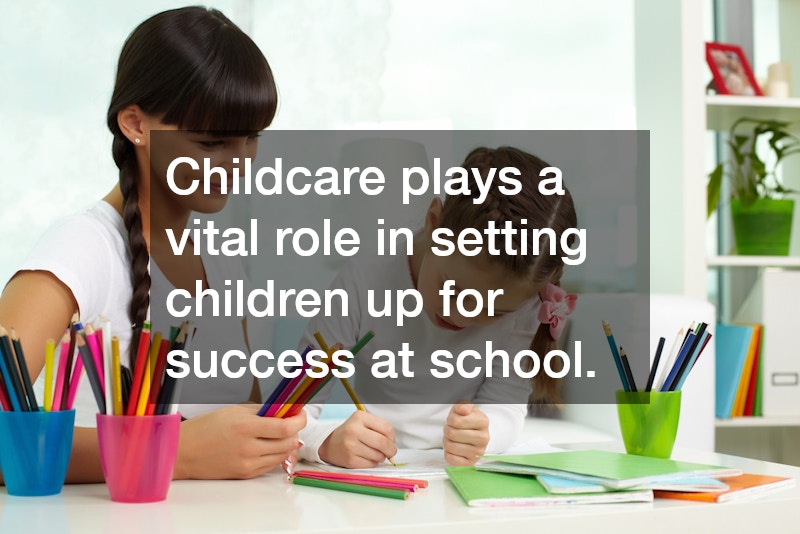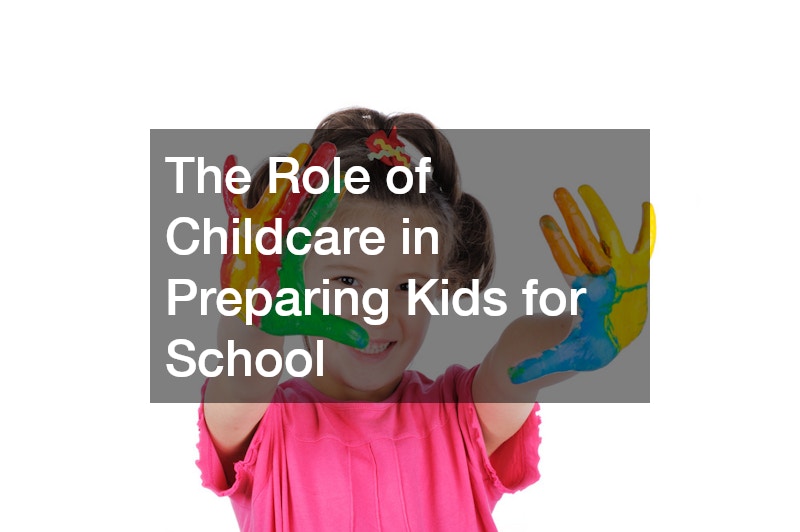Childcare plays an important role in preparing children for the transition to formal schooling. Beyond providing supervision, quality childcare environments support social, emotional and cognitive development that helps children start school confidently. Early experiences in childcare can set the tone for a child’s learning and behaviour in the years ahead.
Developing essential social skills
A major benefit of childcare is helping children develop social skills. When children interact with others in a childcare setting, they learn how to share, cooperate and communicate effectively. These skills are crucial for adjusting to school, where collaboration and positive peer relationships are part of everyday life.
Childcare exposes children to a variety of personalities and backgrounds. This helps nurture empathy and respect for others, giving children the tools to interact kindly and confidently with their classmates when they begin school.
Supporting emotional growth and resilience
Starting school can be a big change that brings about anxiety and new emotions for young children. Childcare supports emotional development by teaching children how to manage feelings like frustration, disappointment and excitement. Caregivers provide a safe space where children can express themselves and learn coping strategies.
Developing emotional resilience through childcare helps children approach school challenges with confidence. They learn to regulate their emotions, follow routines and seek help when needed, making the transition smoother.
Encouraging cognitive development through play
Childcare programs often incorporate play-based learning activities that support language, numeracy and problem-solving skills. These early learning experiences encourage curiosity and critical thinking, laying the foundation for formal education.
Through guided play and exploration, children develop cognitive skills in a way that is engaging and appropriate for their age. This prepares them for the academic demands of school while fostering a love of learning.
Establishing routines and independence
One way childcare prepares children for school is by helping them get used to routines. Daily schedules that include meals, naps, and structured activities teach children about time management and expectations. Learning to follow a routine reduces uncertainty and builds confidence.
Childcare also promotes independence. Children practice dressing themselves, packing their belongings and following instructions. These skills give children a sense of responsibility that helps them settle into school life.
Providing support for families
Childcare is a valuable support system for families. It offers a safe, nurturing environment where children can grow while parents work or study. Childcare providers also share insights with families on how to encourage school readiness at home.
Strong communication between caregivers and parents ensures children’s individual needs are understood and met. This partnership helps create consistency between home and childcare settings, benefiting the child’s overall development.
Promoting health and wellbeing
Good childcare centres prioritise children’s health and wellbeing. They follow nutrition guidelines to provide balanced meals and snacks, helping children develop healthy eating habits. Outdoor playtime is scheduled to encourage physical activity and motor skill development.
These healthy practices support children’s physical growth and prepare them for the active environment of school. Developing habits such as washing hands and self-care in childcare also fosters independence and well-being.
Fostering language and communication skills
Effective communication is a key part of school readiness. Childcare environments provide opportunities for children to practise speaking, listening, and understanding language. Group activities, storytelling, and conversations with caregivers all contribute to building vocabulary and comprehension.
Strong language skills help children follow instructions, engage with teachers and make friends at school. Early exposure to diverse language experiences in childcare gives children a solid foundation for literacy development.
Encouraging curiosity and creativity
Childcare nurtures children’s natural curiosity through activities that promote exploration and creativity. Whether it’s through arts and crafts, music or sensory play, children develop problem-solving skills and imagination.
This creative learning encourages children to ask questions and think critically, traits that serve them well throughout their schooling.
Preparing children for new social environments
Starting school means joining a larger social environment with new routines, rules and expectations. Childcare provides a smaller, structured setting where children can practice these skills. They learn to wait their turn, listen to adults and handle transitions between activities.
Having experience in a childcare setting makes the leap to school less intimidating. Children arrive with a better understanding of social norms and are more prepared to engage positively with teachers and peers.
Childcare plays a vital role in setting children up for success at school. It supports their social, emotional and cognitive development while teaching independence and routine. For families, childcare provides not only a safe place but also a partner in early learning and preparation. By choosing quality childcare, parents can help their children build the skills and confidence they need to thrive in their first years of school and beyond.




